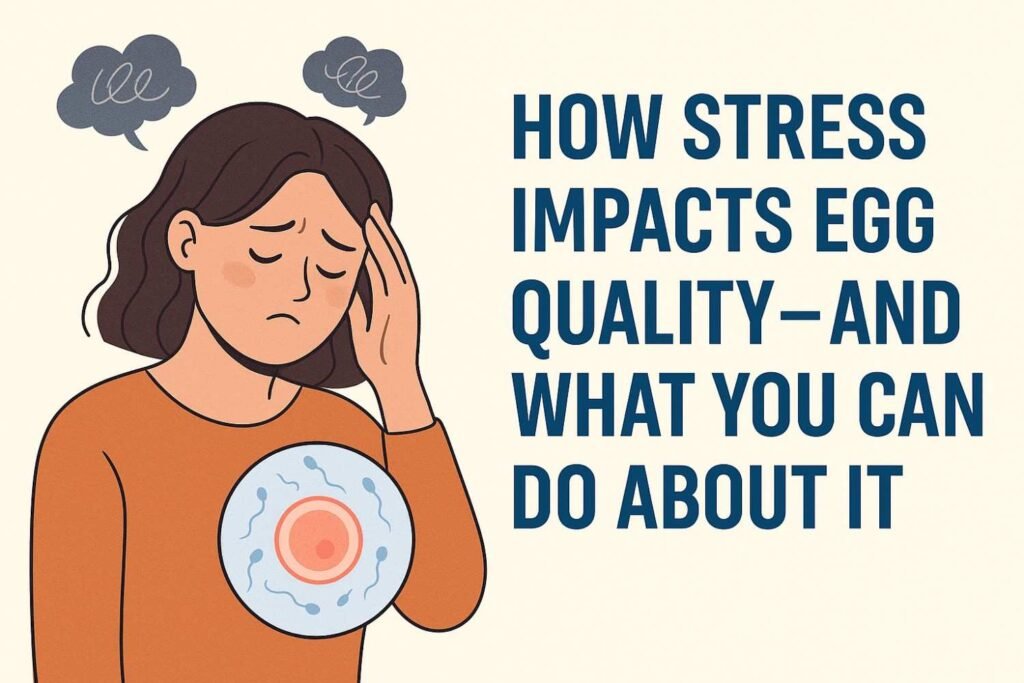When you’re trying to conceive, you’ve likely been told to “just relax.” But is there actual science behind stress affecting fertility — especially egg quality? Yes. Chronic stress can significantly influence your reproductive health. In this blog, Nex IVF and Fertility Centre explains how stress affects egg quality and practical strategies to manage it for better fertility outcomes.

🌱 The Link Between Stress and Egg Quality
Stress activates the hypothalamic-pituitary-adrenal (HPA) axis, which results in the release of cortisol — the “stress hormone.” Elevated cortisol levels can disrupt the delicate balance of reproductive hormones like estrogen, progesterone, and luteinizing hormone (LH). These imbalances may impair ovulation and reduce the quality of eggs (oocytes).
👉 Poor egg quality can lead to:
- Failed fertilization
- Early miscarriage
- Difficulty in embryo implantation
🔍 How Stress Impacts Fertility Holistically
- Ovulation Disruption: High stress may delay or prevent ovulation.
- Menstrual Irregularities: Stress affects the menstrual cycle, making it unpredictable.
- Hormonal Imbalance: It interferes with the release of reproductive hormones.
- Poor Sleep & Lifestyle Choices: Chronic stress often leads to insomnia, poor nutrition, and reduced physical activity — all of which impact egg health.
💡 How to Manage Stress and Support Egg Quality
At Nex IVF, we emphasize holistic fertility care. Here are science-backed strategies to manage stress effectively:
🧘♀️ 1. Practice Mindfulness and Meditation
Regular meditation helps reduce cortisol and improves emotional balance. Just 10–15 minutes daily can support hormonal regulation.
🏃♀️ 2. Engage in Regular Physical Activity
Exercise boosts endorphins, the body’s natural mood enhancers, and improves blood flow to the ovaries, potentially benefiting egg development.
🥗 3. Eat a Fertility-Friendly Diet
Include antioxidants (vitamins C & E), omega-3s, and folate-rich foods. Avoid processed sugars and trans fats that can worsen inflammation and hormone disruption.
😴 4. Prioritize Sleep
Quality sleep (7–9 hours) helps restore hormonal balance and supports overall reproductive health.
🤝 5. Seek Support
Talk to a counselor, join a support group, or seek fertility coaching. Emotional support reduces the psychological burden of infertility.
🩺 6. Consult a Fertility Specialist
At Nex IVF and Fertility Centre, we offer personalized fertility evaluations and care plans. We understand the emotional toll of infertility and provide compassionate support throughout your journey.
💬 Final Thoughts
Stress is a natural part of life, but when it becomes chronic, it can disrupt your reproductive system — especially egg quality. The good news? With the right support, lifestyle choices, and medical guidance, you can take control of your fertility.